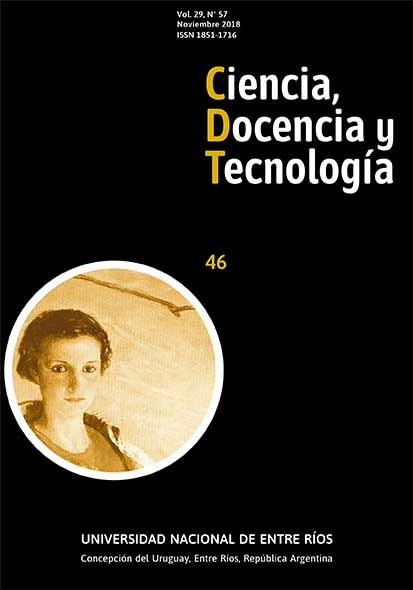Abstract
The development of critical thinking in students is fundamental for them to develop in the workplace. The objective of this research was to identify the contribution of the case method strategy on the development of critical thinking for higher education tourism students. In order to achieve this, there was applied a mixed method approach with embedded and transactional design. The instruments were the critical thinking section of the Individual Generic Skills Test (Olivares and Wong, 2013) and an observation rubric across intervention process. An actual case was chosen to measure interpretation, analysis and evaluation skills. The population of this study was 20 students. The triangulation data analysis was performed to conclude that the case method does develop critical thinking especially on interpretation and analysis.
References
AGUADED, J.; FONSECA, M. (2007). Enseñar en la universidad experiencias y propuestas de docencia universitaria. La Coruña, España: Netiblio, S.L.
ÁLVAREZ, C.; SAN FABIÁN, J. L. (2012).La elección del estudio de caso en investiación educativa, en: Gazeta de Antropología (España), 28(1)
BERNAL, C. A.(2006). Metodología de la Investigación. México, D.F.: Pearson Prenticie Hall.
BRINKERHOFF, R. (2010). The success Case Method: Find out quickly what's working and what's not. San Francisco, California, USA: Berrett-Koehler Publishers, Inc.
BROOM, C. (2011). From Critical Thinking to Critical Being en Encounter (England), 24 (2):16-27.
CRESWELL, J., y PLANO, V. (2011). Designing and conducting mixed methods. Research.California: Sage.
CHAVARRÍA, X.; HAMPSHIRE, S. y MARTÍNEZ, F. (2004). Una aproximación a los estudios de caso desde la práctica, en: Revista de Investigación Educativa (España), 22(2):443-458.
FACIONE, P. (2011). Critical Thinking: What it is and why it counts? en: Insight Assessment (USA) En línea disponble en: http://www.student.uwa.edu.au/__data/assets/pdf_file/0003/1922502/Critical-Thinking-What-it-is-and-why-it-counts.pdf
GÓMEZ, S. (2010). La experiencia de un diseño curricular en turismo basado en un modelo de competencias profesionales, en: Estudios y Perspectivas en Turismo, 1(19):139-156.
HERNÁNDEZ, R.; FERNÁNDEZ, C. y BAPTISTA, P. (2010). Metodología de la Investigación. México: McGraw Hill.
HERNÁNDEZ, Z. (2014). Estrategia pedagógica estudio de caso para fomentar pensamiento crítico en estudiantes de enfermería, en: Revista UNIMAR, 32(1):167-179.
KLEBBA, J.; HAMILTON, J. (2007). Structured Case Analyisis: Developing Critical Thinking Skills in a Marketing Case Course, en: Journal of Marketing Education (USA),29(2):123-139.
LACOSTA, I. (2012). Las ciencias en el aula: Aprendizaje basado en estudio de casos. Zaragoza, España: Prensas Universitarias de Zaragoza.
LIPMAN, M. (2003). Thinking Eucation. Cambridge, UK: Press Synducate of The University of Cambridge.
LÓPEZ, F.; PERALTA, J. (2013). Hoteles RIU: El cliente a los mandos. Barcelona, España: Libros de cabecera.
MULNIX, J. (2012) Thinking Critically about Critical Thinking. Educational, en Philosophy & Theory (USA), 44(5): 64-479. doi:10.1111/j.1469-5812.2010.00673.
NAVARRETE, J. M. (2014). El Muestreo en la investigación Cualitativa, en: Investigaciones Sociales (Perú), 4(5).
OLIVARES, S.; LÓPEZ, M. (2017). Evaluación de la autopercepción del pensamiento crítico en estudiantes de medicina, en: Revista Electrónica de Investigación Educativa, 19(2): 67-77.
OLIVARES, S.; WONG, M. (2013). Medición de la autopercepción de la disposición al pensamiento crítico en estudiantes de medicina. XII Congreso Nacional de Investigación Educativa. Guanajuato, Guanajuato: COMIE.
PAPASTEPHANOU, M.; ANGELI, C. (2007). Critical Thinking beyond skill , en: Educational Philosophy & Theory (USA), 39(6):604-621. doi:10.1111/j.1469-5812.2007.00311.
PAUL, R.; ELDER, L. (2003). La Mini-Guía para el pensamiento crítico, conceptos y herramientas. Estados Unidos: Fundación para el Pensamiento Crítico.
PAUL, R.; ELDER, L. (2005) Una guía para los educadores en los estándares de competencia para el pensamiento crítico. Estados Unidos: Fundación para el pensamiento crítico.
PEREIRA, Z. (2011). Los diseños de método mixto en la investigación en educación: una experiencia concreta, en: Revista Electrónica Eduque, 1(5) .
RAMÍREZ, M.S. (2012). Modelos y Estrategias de enseñanza para ambientes innovadores. Monterrey, N.L.: Instituto Tecnológico de Monterrey.
RAMOS, A.; HERRERA, J. y RAMÍREZ, M. S. (2010). Desarrollo de Habilidades Cognitivas con aprendizaje móvil: un estudio de casos, en: Revista Científica de educomunicación (México), 1(1):288.
SAVIN, M. & HOWELL, C.,(2009). Qualitative Research: The essential guide to theory and practice. New York, USA: Routledge.
SANCHO, A. (1993) Calidad y Educación: Un reto pare el sector turístico, en: Estudios Turísticos, (119-120):23-28.
SCOTT, N. (2008). An Evaluation of the Effects of Using Case-Method on Student Learning Outcomes in a Tourism Strategic Planning Course, en: Journal of Teaching in Travel & Toursim, 7(2):21-34.
SLOBES, J.; TORRES, N. (2012). Análisis de las competencias de pensamiento crítico desde el aborde de las cuestiones socio-científicas un estudio en el ámbito universitario, en: Didáctica de las ciencias experimentales y sociales, 26(24).
VALENZUELA, J.; FLORES, M. (2012). Fundamentos de investigación educativa: El proceso de investigación educativa. Monterrey, Nuevo León, México.
VILLALÓN, P. (2000). Un criterio ideal: Reflexiones para la Educación Turística, en: Revista Turismo em Análise, 11(2): 7-13.
WELLS, K. (2009). Learning and Teaching Critical Thinking: From a Peircean Perspective. Educational Philosophy & Theory. 41( 2): 201-218. doi:doi:10.1111/j.1469-5812.2007.00376.x

This work is licensed under a Creative Commons Attribution-NonCommercial-ShareAlike 4.0 International License.
Copyright (c) 2018 Martha Angélica Montiel Galindo, Deyra Guadalupe Charles Estrada, Silvia Lizett Olivares

